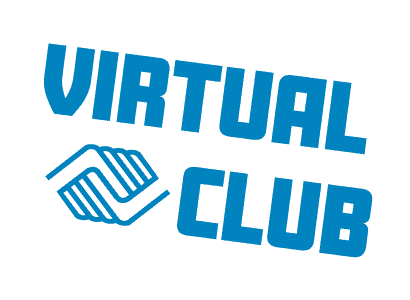For kids and teens earning money through an allowance or first job, it’s important to keep track of what you’re doing with your money – after all, you’ve worked hard for it!
What are you spending your money on? Are you saving any money? Are you thinking about building your credit score as you make purchases?
Answering these questions can be challenging, especially for young adults who haven’t had to worry about finances before, but money management is important for everyone. Kids and teens who understand financial literacy earlier in life will be better prepared for their futures!
This April, for Financial Literacy Month, we sat down with Derek Robinson, a financial expert and Mortgage Consultant at Community First Bank, to find out what youth should know about managing their finances.

Why is financial literacy important for youth?
Derek Robinson: When you’re financially literate, you have the foundation for a good relationship with money. The earlier you start, the better off you’ll be because education is the key to success when it comes to money.
Managing their finances well also gives people a lot of opportunities that wouldn’t otherwise be available to them. For example, when a young person moves out of their current house and gets an apartment, they can get a lower monthly rent if they have good, established credit. Another example is insurance – if they need insurance for their car, a higher credit score will allow them to get a lower insurance rate.
Youth of working age often don’t have a relationship with money, and once they get a job, they don’t necessarily understand how to save or how much things cost.
I believe allowances are always a very positive thing for young people. When youth receive an allowance, they get an idea of what to spend and what to save. For instance, if they receive $5, spend it, and then run out, they immediately understand why they have to budget their money.
What should youth do with money they receive from allowances or paychecks?
DR: Deposit 10% of the amount directly into a savings account that is exclusively used for saving and will not be used for daily or monthly expenses.
After that, they can start spending money on expenses, payments, and anything else. The important thing, especially with personal spending, is for them to budget so they don’t overspend.
What are some tips for budgeting?
DR: Keep track of all your expenses during the month. If you buy a soda, count it. If you buy gas, count it. At the end of the month, you will have a true idea of what your monthly expenses are, and you’ll know how much money you need to earn to support your spending.
Having your expenses written down is really important because if you were to ask most people, they would probably underestimate how much they spend per month. It’s easy to remember monthly bills, such as cell phone bills, but sometimes you don’t take into account things that are more variable, like how much you spend on gas or eating out.
I think using a budget worksheet is a really strong way to understand what your expenses are. After totaling up your spending, you can see how much it costs for you to live.
To help you out, we created a FREE Monthly Budget Worksheet for you to track your spending. Download the pdf, print out some copies, and fill it out as you make purchases each month so you have a clear way of understanding your income vs. expenses.
What should youth know about opening a savings account?
DR: Opening a savings account is actually a pretty easy process. Most banks have what’s called “junior programs” so young adults can open savings accounts. With junior programs, there’s usually no minimum amount that needs to be put in.
I think it helps for young people to see their savings grow. Kids put money into the account, and then they get a statement at the end of the month that says how much money is in there. There’s a visual that goes along with the savings account that’s very positive and powerful for both kids and adults.
Why is it important to have a savings account or emergency fund?
DR: Having money in a savings account for emergencies will prepare youth for unforeseen costs. We generally recommend that people have three to six months of monthly income in savings. That way, if they can’t work, they still have enough money to pay bills for a short period of time.
Let’s say a young person owns a car and budgets $100 per month for a car payment, but then something happens to their car that requires a $250 fix. That’s not a normal budget item they would have in their monthly budget. If they don’t have a savings account, a reserve account, or an emergency account, what will they do? They can’t drive their car.
By having an emergency fund – a savings account that is only accessed for emergencies – they can be prepared. If youth are always just spending all of the money they make every month, they might catch themselves in a tough financial situation.
What should youth know about building credit?
DR: Most people at some point in their life will probably need to borrow money. A credit score is a way for the lender to understand the risk of that borrower. If a young person doesn’t have any established credit, it’s very challenging for them to borrow money because the lender just has no idea what the risk is. That’s why it’s so important for young people to have established credit.
My recommendation for teens is to get a credit card, even if it’s just a small one with no fee. By using a credit card, they prove they can borrow money. If they put their credit card down to buy something, then it will come due at the end of the month, and they show they have the ability to pay it in full and pay it on time. If they do that over multiple months, then they start to establish credit, and it’s called “credit history,” which will give them a score in the future.

The challenge when getting credit is managing it well. If someone charges too much and can’t make the payment because they don’t understand their budget, that’s where they get in trouble. That can be a real negative for somebody, so it’s really important to manage your credit, but you can’t manage it unless you get some.
A lot of young people are using debit cards, but a debit card withdraws money from existing savings accounts. It’s like paying cash. Debit cards don’t establish the credit history most people are looking for.
I think opening a savings account, having a budget, and getting credit set up are the most important things a young person can do for their finances. If they do those three things, they’re going to be way ahead of everybody else.
*This interview was slightly edited and paraphrased for readers with permission from Derek Robinson. We hope this interview and information helped you understand money management and the importance of financial literacy for youth.










